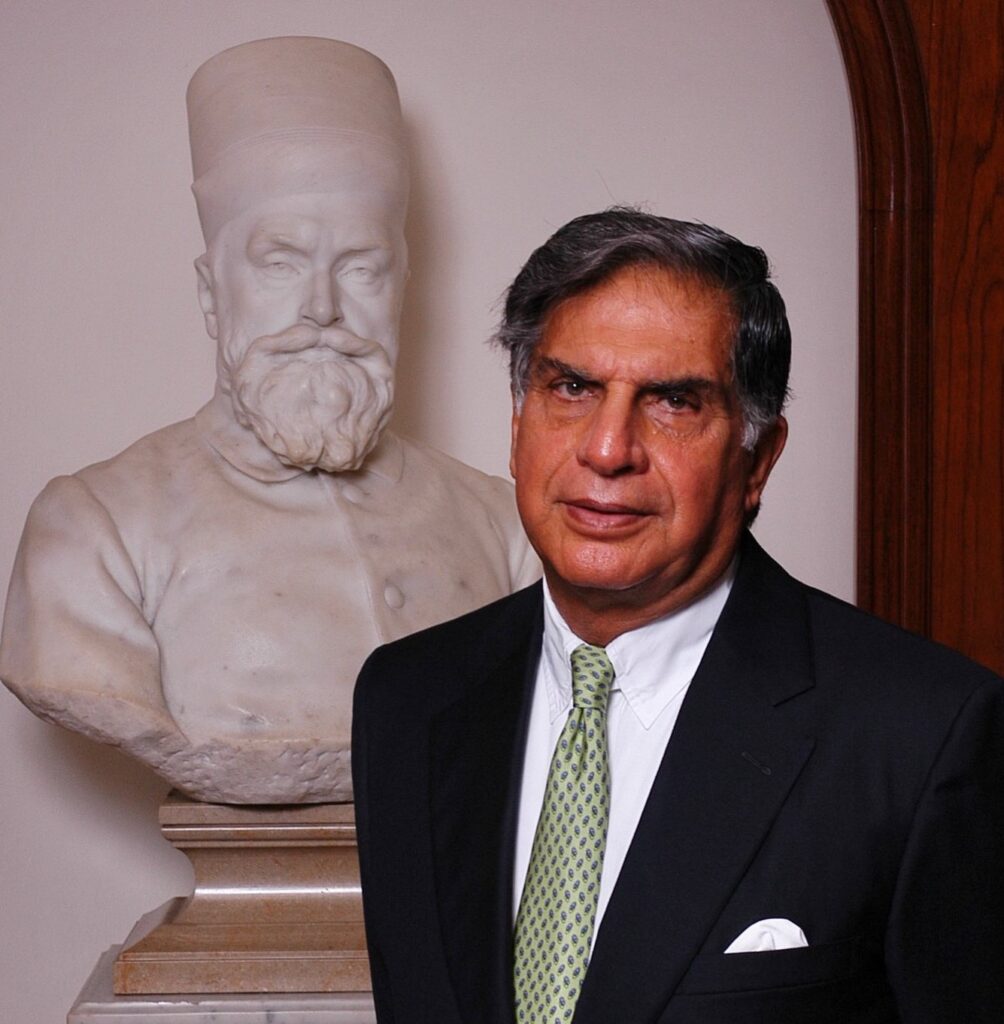Ratan Tata: A Legacy of Leadership, Vision, and Philanthropy

Ratan Tata is one of India’s most celebrated industrialists and philanthropists, recognized globally for his outstanding contributions to business and society. Born on December 28, 1937, in Bombay (now Mumbai), Ratan Naval Tata is the former chairman of Tata Sons and the Tata Group, one of India’s largest and most respected conglomerates. His leadership not only transformed the Tata Group but also established him as a visionary business leader.
Early Life and Education
Ratan Tata was born into a prominent Parsi family, a lineage that has shaped modern Indian industry for generations. His father, Naval Tata, was adopted into the Tata family by Lady Navajbai Tata, widow of Sir Ratanji Tata. Although born into wealth, Ratan Tata’s upbringing was humble and disciplined. His parents separated when he was ten, and he was raised primarily by his grandmother, Lady Navajbai Tata.
Ratan Tata’s education laid the foundation for his future accomplishments. He attended the Campion School in Mumbai before completing his schooling at the Cathedral and John Connon School. Later, he moved to the U.S., where he earned a degree in architecture from Cornell University in 1962 and completed an Advanced Management Program at Harvard Business School in 1975.
Entry into the Tata Group
Ratan Tata’s professional journey with the Tata Group began in 1961 when
he joined Tata Steel as an apprentice. This ground-level experience, working alongside blue-collar employees, taught him the value of hard work and humility.
Over the years, he climbed the corporate ladder, handling various roles across Tata Group companies.
In 1991, he succeeded J.R.D. Tata as the chairman of Tata Sons. This leadership transition marked the beginning of a new era for the Tata Group. At the time, the group was a collection of autonomous companies with varying levels of efficiency. Ratan Tata’s leadership brought a sense of unity and direction. He introduced strategic restructuring, emphasizing innovation, global expansion, and ethical governance.
Transformational Leadership
Ratan Tata is credited with transforming the Tata Group from a primarily India-focused business into a global powerhouse. Under his leadership, Tata Motors acquired the British luxury car brand Jaguar Land Rover in 2008, a deal that not only elevated Tata Motors’ status but also restored the fortunes of the iconic British brands. In 2007, Tata Steel acquired the Anglo-Dutch steelmaker Corus, making Tata Steel one of the world’s largest steel producers.
One of his most notable achievements was the launch of the Tata Nano in 2008, a compact, affordable car marketed as “the world’s cheapest car.” Though the Nano faced commercial challenges, it demonstrated Ratan Tata’s commitment to providing affordable products for the masses, a testament to his vision of inclusive innovation.
Ratan Tata’s tenure also saw the group’s foray into industries like telecommunications, information technology, and retail. Tata Consultancy Services (TCS), under his leadership, became India’s largest IT services company, and Tata Motors and Tata Power expanded their footprints in the automotive and energy sectors.
Ethical Leadership and Values
Beyond business success, Ratan Tata is celebrated for his strong sense of ethics and commitment to corporate social responsibility. Under his leadership, the Tata Group maintained a strong focus on ethical practices, ensuring that the company remained true to the principles of fairness and integrity.
Ratan Tata’s dedication to the well-being of employees, communities, and the environment is evident in the group’s numerous initiatives. The Tata Trusts, which control a majority stake in Tata Sons, are involved in education, healthcare, and rural development projects across India. Tata’s commitment to nation-building is reflected in projects like the Tata Institute of Social Sciences, Tata Memorial Hospital, and the Indian Institute of Science.
Philanthropy and Social Impact
Ratan Tata’s philanthropic vision extends far beyond the corporate world. He has been actively involved in numerous charitable causes, both in India and abroad. After stepping down as the chairman of Tata Sons in 2012, he increased his focus on philanthropy through the Tata Trusts.
His contributions span sectors like education, healthcare, and rural development. Notably, the Tata Trusts played a crucial role in disaster relief during the COVID-19 pandemic, donating funds for healthcare infrastructure and vaccine development.
Ratan Tata has also championed innovation and entrepreneurship. He has personally invested in various startups, especially those led by young entrepreneurs, giving a boost to India’s burgeoning startup ecosystem.
Honors and Recognition
Ratan Tata’s exemplary work has been recognized globally. He has been awarded numerous prestigious honors, including the Padma Bhushan in 2000 and the Padma Vibhushan in 2008, India’s third and second-highest civilian awards, respectively. He has also been conferred honorary doctorates by several universities around the world.
In addition, his role in strengthening India’s relationship with other countries has been significant. He was made an Honorary Knight Commander of the Order of the British Empire (KBE) in 2009 for his contributions to British industry.
Legacy and Continued Influence
Though Ratan Tata officially retired from active leadership of the Tata Group in 2012, he remains a highly respected figure in the business world. His values-driven leadership, commitment to innovation, and deep sense of social responsibility have left an indelible mark on the Tata Group and the broader business community.
Even in retirement, he continues to inspire millions through his work in philanthropy and his support for young entrepreneurs. His vision of business as a force for good, coupled with his unwavering integrity, has made him not just an industrialist but a true statesman of modern India.
In Ratan Tata, India has found a leader who not only expanded the global footprint of Indian industry but also demonstrated how businesses can be run ethically, with a focus on long-term societal impact. His legacy continues to inspire future generations of business leaders, both in India and around the world.





